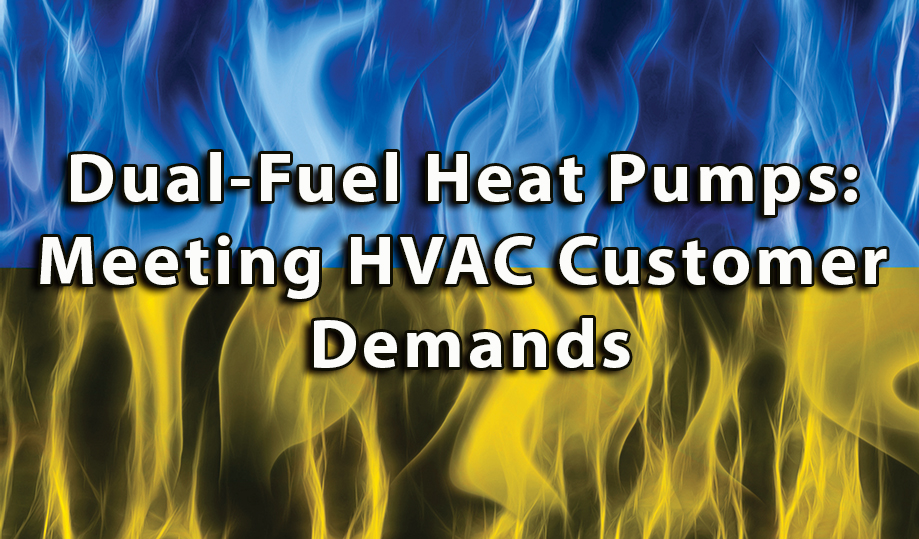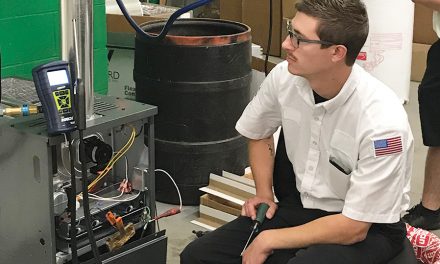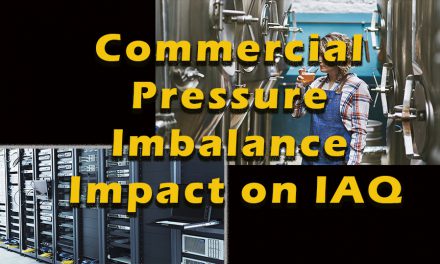In the ever-evolving world of comfort solutions, HVAC contractors face new challenges and opportunities. Customers are increasingly seeking energy-efficient and eco-friendly options to meet their heating and cooling needs while addressing concerns about rising utility costs, fluctuating energy prices, and potential power outages.
Although heat pumps have gained popularity for their environmental benefits, many customers remain skeptical about their performance in cold weather. This is where dual-fuel heat pumps come into play, offering HVAC contractors a versatile solution to cater to the evolving demands of customers.
Addressing Customer Concerns
Homeowners often harbor reservations about heat pump systems due to their perceived ineffectiveness in cold weather. When heat pumps first gained popularity in the 1970s, they were unable to heat efficiently in below freezing temperatures.

Many heat pumps available today have much better cold weather performance, but homeowner misconceptions persist.
Additional concerns include the potential for perceived lower comfort due to lower supply air temperatures, higher utility bills, uncertain future electricity costs, and worries about heating during power outages.
As HVAC contractors, it’s crucial to acknowledge and address these concerns to provide effective solutions for homeowners.
The Benefits of Dual-Fuel Systems for Contractors
Dual-fuel heat pumps can be a game-changer for HVAC contractors, providing several advantages:
- Diverse Solutions: Offering these systems allow you to provide solutions that cater to various customer preferences and concerns, making your services highly appealing for discerning homeowners who appreciate versatility.
- Customer Satisfaction: Dual-fuel systems ensure customer comfort and peace of mind. The gas furnace acts as a reliable backup in situations where the heat pump may fall short, such as during extreme cold weather or power outages. During a power outage the furnace can be operated with a small generator or modest backup battery.
- Pricing Flexibility: Dual-fuel systems enable you to provide cost-effective solutions that can compete with traditional furnace and air conditioning setups, depending on existing equipment and local climate conditions.
This adaptability can appeal to budget-conscious customers. Leveraging the furnace for cold and very cold temperatures can also allow for more aggressive downsizing of the heat pump, potentially avoiding costly electrical system upgrades. - Climate Resiliency: In an era of climate change, extreme weather events, including severe cold spells, are becoming more common. Dual-fuel systems offer climate resiliency, ensuring that homeowners stay warm even during extreme cold snaps or power outages caused by natural disasters.
Guiding Customers to the Right Dual-Fuel System
When helping customers choose a dual-fuel system, consider their specific needs:
- Upgrading Existing Furnace: For relatively new furnaces (under 10 years old) with single-speed fans, consider recommending high EER single-stage heat pumps that match the fan’s capabilities. Avoid pairing older furnaces with multistage or variable capacity heat pumps, as this could significantly reduce the SEER advantage of the system. An external controller with an outdoor changeover sensor may be necessary for older systems.
Click Below for the Next Page













Recent Comments